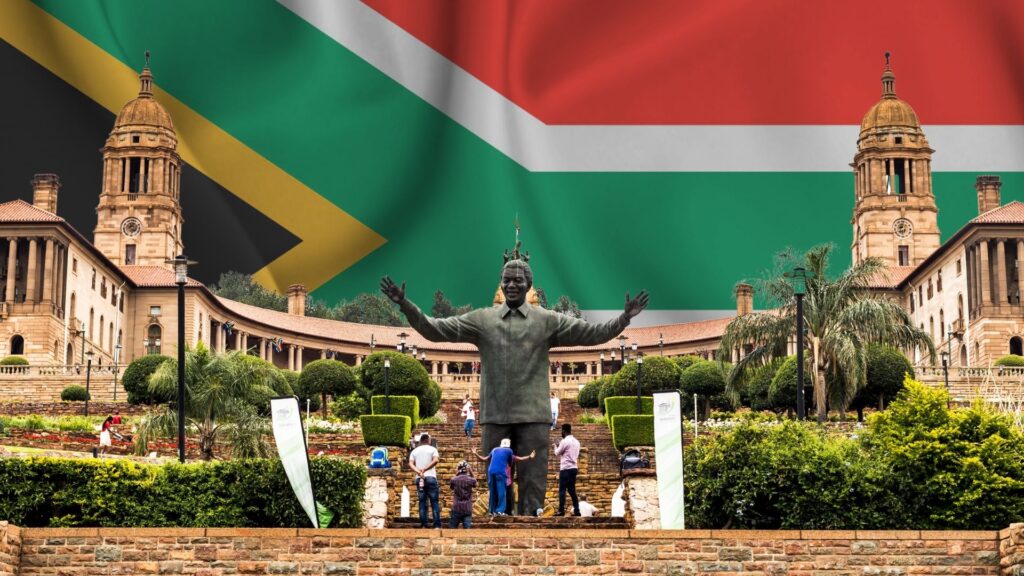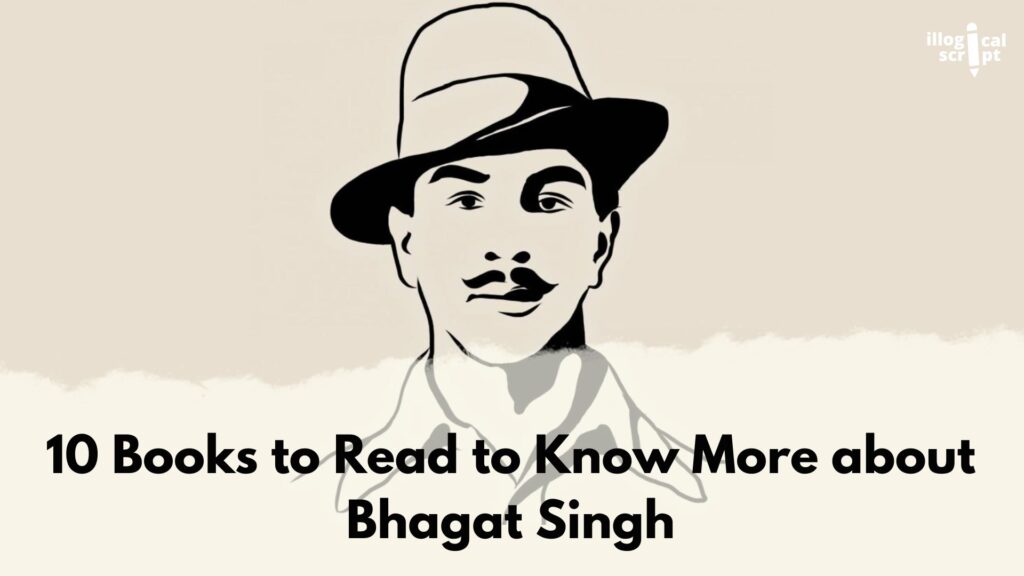South Africa is a beautiful place indeed famous for its high production of platinum and diamond. I’ve explored so much about South Africa on the internet and would want to visit this amazing place at least once in my life however, it also has a pretty high rate of crime. All the reasons for crime lie in its history. So, here, I’ve got for you some fantastic 21 books about South African history that’ll help you know more about its society and culture.
There were many books that explains about south African history. I have read about some of the history incidents of South Africa especially apartheid on internet as well as in academic books. It was one of the hardest times in South Africa and how worse was discrimination could be seen through the incidents recorded by the people of South Africa. However, even though it is a global issue, many people are still unaware of the brutality faced by the black people.
South African history is pretty vast and diverse, yet so underrated. This country has seen several horrors and struggles like Dutch colocalization, British colonialization, slavery, and extreme level of discrimination based on one’s skin color, popularly known as Apartheid. Many political leaders like Nelson Mandela, Winnie Madikizela-Mandela, F. W. de Klerk, and even Mahatma Gandhi emerged from this country. They brought about many significant changes in the political society in different parts of the world.
So without any further ado! lets get started.
21 Books About History of South Africa One Must Read
These outstanding books will give you insights into early South African society.
1. Playing the Enemy
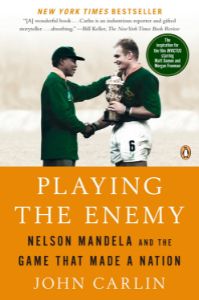
Full Title: Playing the Enemy: Nelson Mandela and the Game That Made a Nation
Author: John Carlin
Genre: Biography
Publishing Date: 2008
Description:
More than an athletic trophy was on the line when the Springboks met New Zealand’s all-conquering All Blacks in the 1995 Rugby World Cup final. Nelson Mandela won the hearts of white South Africans when he emerged in a Springboks shirt and addressed the all-white Afrikaner-dominated squad by chanting the new national hymn. Facing the Enemy recounts the incredible human narrative of how that event came to be.
It demonstrates how a sport previously the domain of South Africa’s Afrikaans-speaking minority came to unite the new multicolored nation and how, on rare occasions, something as basic as a game can genuinely help people rise above themselves and look beyond their divisions.
2. Born a Crime
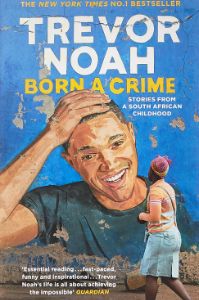
Full Title: Born a Crime: Stories from a South African Childhood
Author: Trevor Noah
Genre: Biography
Publishing Date: 2016
Description:
Trevor Noah is the anchor of The Daily Show with Trevor Noah, on which he cheerfully serves up a regular dose of savage humor to America. He’s a quick-witted but astute observer of the endless oddities of politics, patriotism, and ethnicity and the lunacy of his own youth, which he spent at the crossroads of history and culture.
Noah describes his coming-of-age narrative with his larger-than-life mother during the final days of apartheid-era South Africa and the following problematic years.
Noah was born illegally, that is, to a white Dutch father and a black Xhosa mother, who had to claim to be his babysitter or his father’s servant in the few instances that the people gathered together. His splendidly bizarre mother towered over his daily existence, an amusingly passionate Christian, an intelligent swindler who kept meals on the plate during hard times, and a vigorously involved, if frequently sincerely wrong-headed, caregiver who set Noah on his choppy path to superstar status.
3. My Traitor’s Heart
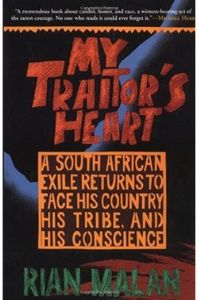
Full Title: My Traitor’s Heart: A South African Exile Returns to Face His Country, His Tribe, and His Conscience
Author: Rian Malan
Genre: Autobiography
Publishing Date: 1990
Description:
The author, the son of a prestigious Afrikaner family and the grandson of one of Apartheid’s founders, grew up in the city and rebelled against his parents’ prejudice. He works as a criminal journalist for a Johannesburg newspaper, viewing himself as a Just White Man. Malan escaped the military draught in 1977 but returned to his homeland in 1985 to come up with a remedy to the contradiction of my South African life in stories about how we slaughtered each other.
Malan examines the frightening killing of blacks by racists, including a detailed discussion of a Zulu murderer who used a mallet to slaughter whites. When the author discovers the amount of black brutality against blacks in fighting opposing factions or tribes, he becomes more afraid, facing off against his ethnic paranoia. South Africa has become a massive killing field due to rural barbarism and foolish ideas.
4. Slaves for Peanuts
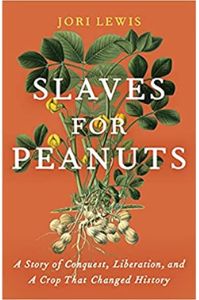
Full Title: Slaves for Peanuts: A Story of Conquest, Liberation, and a Crop That Changed History
Author: Jori Lewis
Genre: Non-Fiction
Publishing Date: April 2022
Description:
This book masterfully brings together all the human and environmental histories of a commodity that changed millions of people’s lives. The author explains how the European need for peanut oil guaranteed that slavery in Africa persisted well into the 20th century, even though European powers had declared slavery illegal in the countries they governed.
The author recreates a world on the African coast that is stunningly vivid and unlike anything current readers have experienced by digging down into West African and European sources. It is presented through the eyes of a cast of beautifully portrayed characters, ranging from an African-born French preacher housing escaped slaves to the governor of a Wolof state maneuvering the politics of French imperialism, all of whom question our most fundamental beliefs about the motivations and people who encouraged human bonding.
5. Alabama in Africa
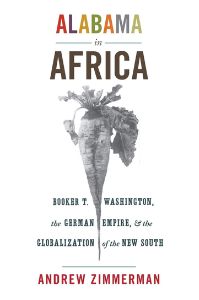
Full Title: Alabama in Africa: Booker T. Washington, the German Empire, and the Globalization of the New South
Author: Angela Zimmerman
Genre: Non-Fiction
Publishing Date: 2010
Description:
Rather than serving as a blank slate for American and German ideals, as the author demonstrates, the people of Togo shaped their region’s role in the global South. He examines the mode of opposition established by formerly enslaved African Americans, Polish migrant laborers, African cotton farmers, and other communities oppressed by the developing imperial economics and politics but never docile victims of it.
Zimmerman rebuilds the global South’s social science as established by intellectuals like Max Weber, and W.E.B. Du Bois demonstrates how their ideas continue to shape contemporary race, wealth, and society.
6. A Short History of South Africa
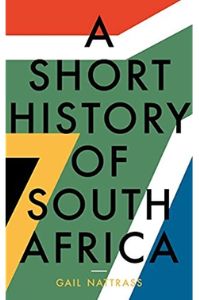
Full Title: A Short History of South Africa
Author: Gail Nattrass
Genre: Non-Fiction
Publishing Date: 2017
Description:
This book is a concise, overall history of South Africa, covering everything from the earliest signs of actual existence to the eighteenth and nineteenth-century wars that led to the formation of modern South Africa, the barbarity of Apartheid, and the optimism that followed its demise, as well as future problems and prospects.
This accessible and extensive narrative, complete with maps and images, results from a decade of research and education on South African history.
7. A Military History of Modern South Africa
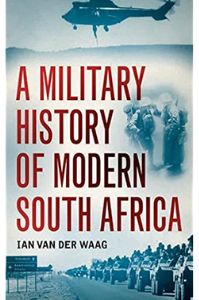
Full Title: A Military History of Modern South Africa
Author: Ian van der Waag
Genre: Non-Fiction
Publishing Date: 2015
Description:
The twentieth century was marked by long-term, swift, and profound sociopolitical transformation. Countless wars, rebellions, uprisings, and demonstrations have characterized the incorporation, disintegration, and reunification of civilization and the landmass in Southern Africa during this time. The century starts with a quick but devastating conflict.
The vanquished Boer republics and the Cape and Natal possessions were merged into the Union of South Africa less than ten years later. And the armed services of this early formation saw action in not only all of the twentieth century’s major wars but also in various local conflicts, including Afrikaner nationalist rebellions, syndicalist-fueled manufacturing turmoil, and rebellions led primarily but not solely by disaffected black South Africans.
The century ended with a conflict, just as it had begun. However, this was a confined conflict, a spark in the Cold War that spanned more than the territory and a long twenty-three years.
8. South Africa – Culture Smart!
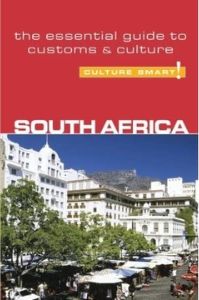
Full Title: South Africa – Culture Smart!: The Essential Guide to Customs & Culture
Author: Isabella Morris
Genre: Travel literature
Publishing Date: 2017
Description:
This book explains why South Africa has been called a “Rainbow Nation” and “A World in One Country.” Its scenery varies from kilometers of excellent beaches to the Karoo’s deep deserts, the Highveld plateau’s expansive meadows, and the Lowveld’s temperate vegetation. It has a diverse ethnic makeup. There are 11 main languages, nine powerful black African tribes, two powerful white tribes, and representations of all major world religions worldwide.
It features a free market economy with communism sharing power in the administration, one of the world’s most outstanding liberal founding documents and profoundly patriarchal society, and extremely wealthy and impoverished people living side by side. South Africa has survived the fire, and, even though there is still a lot of heat, it is doing quite well.
This insider’s guide will introduce us to the people of South Africa’s universal warmth and cultural diversity, explain the context of their troubled past, and familiarise us with their daily lives so that we’ll feel at ease whether we’ve decided to invite a shack in the shantytowns, a manor house in the suburbs, or a beach braai. We’ll discover how to keep safe in risky situations and know when and where to feel like you’re the only people on the earth.
9. Long Walk to Freedom
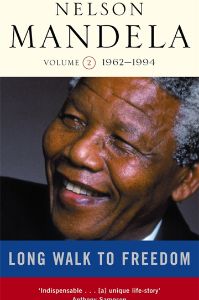
Full Title: Long Walk to Freedom
Author: Nelson Mandela
Genre: Autobiography
Publishing Date: 1994
Description:
This book is his stirring and thrilling autobiography, guaranteed to rank among the best biographies of humanity’s most prominent personalities. Nelson Rolihlahla Mandela revealed the fantastic narrative of his life and, finally, here, an epic of struggle, defeat, sense of hope, and final triumph.
Nelson Mandela was a worldwide hero, a moral and political giant of his day. His lifelong commitment to ending racial tyranny in South Africa earned him the Nobel Peace Prize and the leadership of his country. He was at the forefront of the world’s most captivating and uplifting historical drama after his victorious release from more than a fraction of jail in 1990.
10. Prisoners of the Past
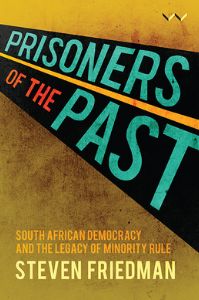
Full Title: Prisoners of the Past: South African Democracy and the Legacy of Minority Rule
Author: Steven Friedman
Genre: Non-Fiction
Publishing Date: 2021
Description:
The author of this book contends that this misunderstands the essence of contemporary South Africa. The author builds on the work of financial historian Douglass North and political theorist Mahmood Mamdani to illustrate that South Africa’s democratic problems are a result of the country’s pre-1994 history. The agreement that brought majority rule to South Africa preserved vital aspects of the apartheid economic system.
The economy continues to exclude millions of people from its advantages while racial inequalities persist. Apartheid has been debunked, but the values of the pre-1948 colonial era, when Britain ruled the country, still reign supreme. As a result, while South Africa’s democracy promotes free elections, individual freedoms, and the legal system, it also perpetuates excluding and oppressive tendencies.
11. South African Armoured Fighting Vehicles

Full Title: South African Armoured Fighting Vehicles: A History of Innovation and Excellence, 1960-2020
Author: Dewald Venter
Genre: Non-Fiction
Publishing Date: 2020
Description:
This book examines 13 legendary South African armored personnel carriers in depth. Each vehicle’s evolution is based on its significant features, design and layout, technology, capacities, modifications, and service experiences. This collection is an excellent and valuable reference source, with over 100 authentic images and more than two dozen specially designed color profiles.
Africa became a hotspot for proxy warfare between the East and the West during the Cold War. Southern Africa experienced one of the most fierce wars ever fought on the continent, set against a dramatic rise in liberation forces supported by Eastern Bloc communist nations such as Cuba and the Soviet Union. South Africa was cut off from significant armament systems suppliers in 1977 due to global penalties placed because of its policy of racial discrimination, known as Apartheid.
Over the next few years, the nation became embroiled in the Angolan war, which grew increasingly ferocious and eventually devolved into a military war. With available weapons ill-suited to the region’s hot, dry, and dusty climate and the ever-present threat of land mines, South Africans began studying and designing their own, often ground-breaking and creative weapon systems.
The result was planned for some of the most durable armored personnel carriers ever built anywhere in the world at the time, and they have influenced progress in various disciplines ever since.
12. The Cambridge History of South Africa
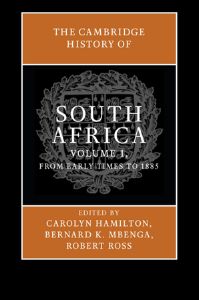
Full Title: The Cambridge History of South Africa
Author: Anne Kelk Mager, Robert Ross, Bill Nasson
Genre: History
Publishing Date: 2010
Description:
This book, published 15 years after South Africa’s rule of the majority, takes a critical and in-depth look at the country’s history. It is impartial, straightforward, and enlightening in its presentation of South Africa’s past.
The book intricately weaves fresh evidence, analyses, and viewpoints on South African history, from the Early Iron Age to the dawn of the mineral transformation on the Rand, with chapters supplied by ten of the country’s top historians. Its results include new sources, methodologies, and concepts, such as offering new Data on African-colonial invasion interactions and revisiting critical problems of culture and awareness.
This book provides an essential reappraisal of South Africa’s main historical facts, advancements, and archives, both documented and verbal, and will be an effective new option for learning and lecturers of African history worldwide.
13. History of the Emigrant Boers in South Africa
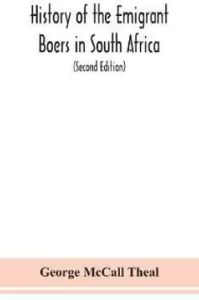
Full Title: History of the Emigrant Boers in South Africa: Or, The Wanderings and Wars of the Emigrant Farmers from Their Leaving the Cape Colony to the Acknowledgment of Their Independence by Great Britain
Author: George McCall Theal
Genre: History
Publishing Date: 1887
Description:
The emigration of the Boers from the Cape Colony and the founding of the two Republics in the Interior of South Africa is the focus of this book. The work’s focus extends to the proclamation of the republic of Natal and its supersession, as well as the groundwork of the Orange Free State and the South African Republic.
The beginning chapters cope with the native ethnicities of the Cape and their leaders, followed by an account of the Great Trek and the Boers’ settlements, as well as their wars with the natives and the British. Academicians and intellectuals have praised this book for its importance and usefulness in the field of literature. This will be passed down the generations as part of the information base.
14. Love and Revolution in the Twentieth-Century Colonial and Postcolonial World
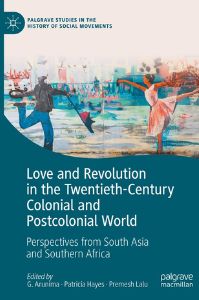
Full Title: Love and Revolution in the Twentieth-Century Colonial and Postcolonial World: Perspectives from South Asia and Southern Africa
Author: G. Arunima
Genre: Non-Fiction
Publishing Date: 2021
Description:
The Indian and southern African subcontinents focus on this book’s liberatory narratives. This book is remarkable because it uses impact theories to investigate political histories, tying romance and rebellion altogether. The chapters explore the shared memories of all those who live with their colonial pasts, that is, expectancies dilemmas, imperial national tremors, anti-colonial cooperation recollections, and even shared radicalism libraries.
It stresses the unique and distinctive way conceptions of ‘world love’ arose in the context of anti-colonial struggle, that is, a love of the world for which one would give one’s life and for which there was little parallel in the history of previous revolutions. It thus provides new perspectives on the evolution of global liberation practices over 200 years.
15. Revisiting South Africa’s Nuclear Weapons Program
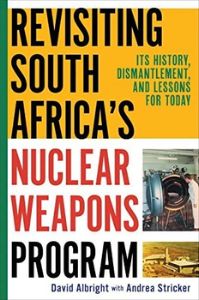
Full Title: Revisiting South Africa’s Nuclear Weapons Program: Its History, Dismantlement, and Lessons for Toda
Author: Andrea Stricker and David Albright
Genre: Non-Fiction
Publishing Date: 2016
Description:
This book is the first thorough, technically-oriented examination of South Africa’s nuclear weapons program, including how it grew, matured, and ended, based on earlier confidential Data. It also draws parallels with current nuclear proliferation instances. South Africa made the historic choice to surrender its nuclear weapons in 1989, rendering it the first and only country to produce nuclear weapons and then abandon them.
Over thirty years, the apartheid state had developed a remarkable capability to construct nuclear weapons, including nuclear warheads and sophisticated military capabilities to deliver them.
The program began in secrecy and stayed that way until its conclusion. The administration attempted to demolish it in stealth at first. It intended to prevent any unfavorable diplomatic ramifications of nuclear weapons possession. Because many intelligence officials were aware of South Africa’s nuclear weapons, the apartheid government’s scheme failed. In 1993, South African President F.W. de Klerk altered course in the face of heavy pressure and endorsed a transparency policy.
However, he chose to conceal several of its features. Despite this, most surviving mysteries were revealed over the next 25 years.
16. Modern South Africa in World History
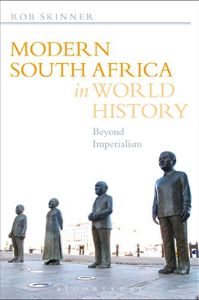
Full Title: Modern South Africa in World History: Beyond Imperialism
Author: Rob Skinner
Genre: Non-Fiction
Publishing Date: 2017
Description:
This book examines South African history in the context of colonial and global authority, commerce, and communication systems. The interaction of internal and external influences defines South African modernism.
The impact of imperial and global influences on key historical themes such as the onset of an industrial base, the development of systematic racial discrimination and popular resistance based on race authority, and the impact of ethnic and national personalities on political and social institutions are all discussed. This book is essential for everyone interested in learning about South Africa’s place in international history.
17. Riding High
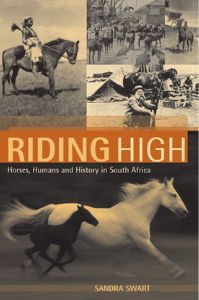
Full Title: Riding High: Horses, Humans, and History in South Africa
Author: Sandra Swart
Genre: History
Publishing Date: 2010
Description:
Horses were crucial to southern Africa’s imperial economies, bolstering the socio-political system and stimulating modern fantasies. Like their counterparts in Europe, Asia, the Americas, and North Africa, these horse colonists supplied power and mobility to colonists. They assisted in transforming their new biophysical and socio-economic settings. As a result, the novel reintroduces the horse into a larger historical story.
The social, financial, and political consequences of their introduction are discussed. The concept of ecological colonialism is tested to bring southern African ecological history into a larger global conversation on socio-environmental history. The symbolic factor that led to horses being both frightened and admired is also explored. The perceptual aspects of this species’ connection with human civilizations are also investigated.
18. An Economic History of South Africa
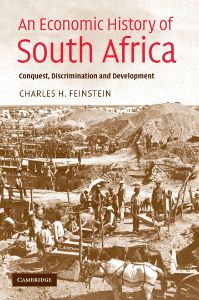
Full Title: An Economic History of South Africa: Conquest, Discrimination, and Development
Author: Charles H. Feinstein
Genre: History
Publishing Date: 2005
Description:
This is South Africa’s first economic history in over sixty years. Professor Charles H. Feinstein provides a comprehensive account of South African economic history spanning 500 years, from before European arrival in 1652 to the post-Apartheid era.
He describes the early years of gradual progress, followed by the economic transformation brought about by finding gold and gems in the 1870s and the fast rise of the industry during the war years. The later chapters discuss the implementation of Apartheid following 1948 and its economic repercussions.
The mechanisms whereby the black populace was robbed of their land and the tactics by which they were compelled to provide work for white fields, mines, and industries are given special consideration.
19. The Boy Who Harnessed the Wind
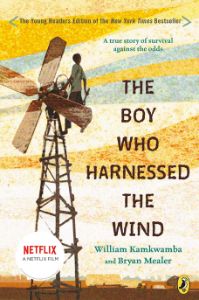
Full Title: The Boy Who Harnessed the Wind
Author: Bryan Mealer and William Kamkwamba
Genre: Biography
Publishing Date: 2009
Description:
The intrepid young entrepreneur who brought electricity to his Malawian community is the subject of this compelling narrative of survival and perseverance.
When a devastating drought hit the author’s little community in Malawi, South Africa, his family lost all of the season’s crops, leaving them with nothing to eat or sell. In the search for a solution, William began to peruse science books in his small library. He had an idea there that would alter his family’s lives for the better. That is, he could build a windmill.
William’s windmill, which he built out of scrap steel and old cycle parts, provided electricity to his home and assisted his family in pumping the water they required to till the land. This fascinating biography, recreated for a younger audience, demonstrates how, even in a difficult circumstance, one boy’s fantastic idea can brighten up the world.
This is the ideal version to study and discuss with the whole family, as it includes images, graphics, and a postscript that brings readers up to speed on William’s tale.
20. Made for Goodness
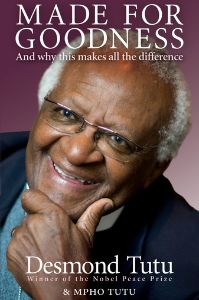
Full Title: Made for Goodness: And Why This Makes All the Difference
Author: Desmond Tutu
Genre: Non-Fiction
Publishing Date: 2010
Description:
The author has seen some of the world’s darkest periods, battling Apartheid’s racist government policy for years and serving as an ambassador of peace in the context of governmental, humanitarian, and environmental calamities since then. Despite this, people continue to describe him as one of the most pleasant and optimistic people they have ever met.
The author shares his sense of support and positivity in this book. Tutu contends, in a book co-written with his daughter, Mpho, who is an educated Anglican clergyman, that God created us for good and that once we begin walking in the path of that vocation, God will greet us, support us, and welcome us.
God has created the world as a magnificent stage in which we might play out this summons to goodness; it is up to us to stay true to this vocation, but God is with us every step along the way.
As a result, confronting our most difficult situations takes on a new definition, bolstered by faith and the anticipation that God will come up precisely where we need Him.
21. We Are Not Such Things
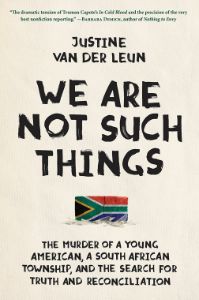
Full Title: We Are Not Such Things: The Murder of a Young American, a South African Township, and the Search for Truth and Reconciliation
Author: Justine van der Leun
Genre: True crime
Publishing Date: 2016
Description:
Amy Biehl’s tale is well-known in South Africa. The 26-year-old white Fulbright student was brutally killed by a crowd of young black males in a slum outside of Cape Town on August 25, 1993, amid Apartheid’s dying days. Her parents’ acceptance of two of her assassins became an emblem of South Africa’s Peace and Reconciliation effort.
The story’s creator chose to tell it to an American audience. Van der Leun’s four-year research into this odd, tangled tale of unfairness, brutality, and empathy resulted in this book. The strange plot twists of this lawsuit and its consequences, as well as the story that unfolds of what occurred on that fateful day in 1993 and the following decades, combine in an unflinching portrayal of life in South Africa today.
Final Words
South Africa’s political, geographical, social, and economic history is less than none. There is so much to learn and gain from it. SO many new concepts and so many new ideas. Especially about these books provide just the information one needs to know about the country, including personal accounts and memoirs that provide us with an insider view of the society.
If you liked these recommendations, do check out more:
